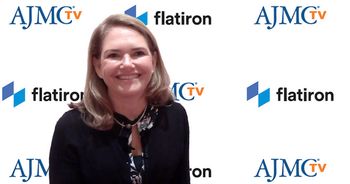
Physicians’ response to policy changes in the Affordable Care Act show that changing cost-sharing formulas can make a difference, according to results reported by Drs. Joseph Ladapo and Dave Chokshi.


Physicians’ response to policy changes in the Affordable Care Act show that changing cost-sharing formulas can make a difference, according to results reported by Drs. Joseph Ladapo and Dave Chokshi.

Some states prepare to end the Children's Health Insurance Program with no new funding; shifting healthcare landscape reveals odd partnerships; Affordable Care Act sign-ups slow in third week of open enrollment.

The National Center for Health Statistics has issued its early estimates from the National Health Interview Survey, conducted between January and June 2017. The report presents selected estimates, based on data for 39,480 people in the first 6 months of the year, on health insurance coverage for the US population.

Every week, The American Journal of Managed Care® recaps the top managed care news of the week, and you can now listen to it on our podcast, Managed Care Cast.

This week, the top stories in managed care included new hypertension guidelines lowering the threshold for high blood pressure, Trump nominating a new HHS secretary, and many consumers now have access to less expensive ACA plans.

The FDA issued new guidelines to speed up the review process for gene therapies; a new report calculates the potential societal benefits of eliminating the opioid epidemic; and one-third of Americans are unaware that the ACA's open enrollment season has begun.

Study finds 2 competing opioid treatments have similar outcomes; GOP tax bill includes repeal of the ACA's individual mandate; and a study finds a correlation between screen time and depression in teenage girls.

The dependent coverage provision was associated with an increase in total and private expenditures and a decrease in out-of-pocket medication expenditures paid, especially among higher-income groups.

As oncology moves toward more deep diagnostic testing and as standard of care continues to quickly evolve, technology advancements are necessary to continue to improve patient access to clinical trials, explained Amy Abernethy, MD, PhD, the chief medical officer, chief scientific officer, and senior vice president of oncology at Flatiron Health.

While consumers must buy coverage or face penalties under the individual mandate for now, there is speculation that a Trump tax plan could remove this feature of the Affordable Care Act.

A battle between hospitals and pharmaceutical companies is brewing over the 340B program; Uber and other companies relying on independent contractors lead the push to get people to enroll in Obamacare plans; the government intends to crack down harder on fentanyl-related substances.

President Donald Trump is expected to name an ex-Eli Lilly executive as his pick for HHS secretary; Connecticut's new budget will cut Medicaid eligibility; Nebraska lawmaker seeks a Medicaid expansion ballot vote.

First day Affordable Care Act (ACA) enrollment surpassed numbers from last year; CVS will offer next-day and same-day prescription delivery in 2018; and voter confusion surrounds Ohio's drug-pricing ballot measure.

With the ACA putting emphasis on preventive care, there has been an immediate increase in breast and coloreactal cancer screenings. A recent study found that incidence rates of early-stage breast and colorectal cancer increased in 2014, but did not vary for late-stage breast and colorectal cancer.

The report from PwC states that people who met criteria for traditional Medicaid enrolled in larger numbers after the ACA, apparently with help from navigators.

The former CMS administrator, who coined the term the Triple Aim, spoke about what he sees ahead in technology and how uncertainty is affecting the healthcare quality movement.

A new study questions the use of stents in certain patients; the House is expected to pass CHIP funding, but how to pay for it continues to be debated; and nearly all older, poorer people will have access to cheaper ACA plans in 2018.


Whether consumers use HealthCare.gov or a state exchange, this year’s enrollment cycle—the first year of Obamacare without Barack Obama—promises to be different. Some consumers will see premiums soar, while others will pay next to nothing,

Premiums for silver plans will rise substantially more than bronze and gold plans due to many states’ insurers loading the cost from the eradication of the cost-sharing reduction payments in the tier, according to an analysis by The Henry J. Kaiser Family Foundation.

At the fall ACO & Emerging Healthcare Delivery Coalition®, Clay Alspach, JD, principal at Leavitt Partners, discussed navigating the current political and payment reform landscape, making sense of the uncertainty, and preparing for the unexpected.


Top news of the day: More people will have access to ACA plans with no premiums, a challenge to Arizona's Medicaid expansion funding goes to the state supreme court, and a dive into coverage of the opioid epidemic.

Many of survivors of childhood cancer who are now within the prime age for labor force participation are reluctant to make changes in their employment because of access to health insurance, and therefore, job lock is common among this population.

While Congress debates the fate of the Affordable Care Act, healthcare transformation continues, as seen in an update released this week at Horizon Blue Cross Blue Shield of New Jersey.

259 Prospect Plains Rd, Bldg H
Cranbury, NJ 08512
© 2025 MJH Life Sciences®
All rights reserved.
